Top 10 ICC Test batting ratings of all-time
The below-mentioned players epitomised consistency for a chunk of their careers.
10 Min Read


Don Bradman. (Photo by Keystone/Getty Images)
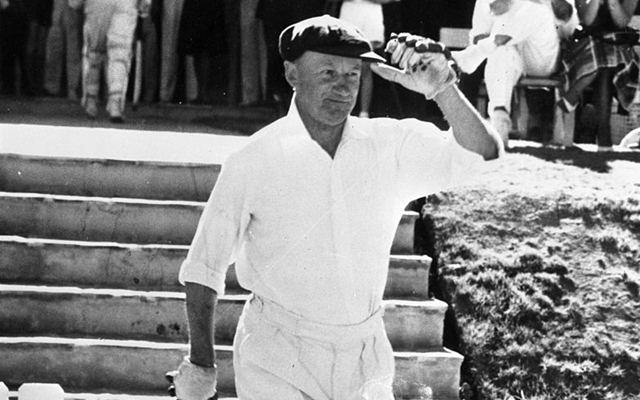
Test cricket is considered as the purest form of cricket. It started way back in the 19th century and still, the custodians of the game, love the orthodox format the most. There have been several debates on who is the best Test batsman of cricket history. The answer is not that easy to find out though.
Test cricket is about determination, concentration, having an adequate defensive technique and the ability to counter-attack when needed. It is considered similar to human life as it has so many challenges. Still, the cricket pundits often tell a few names above the rest for the batsmen who got nearer to perfection. Sachin Tendulkar, Don Bradman, Brian Lara, Ricky Ponting are few of those examples.
ICC, the apex cricket body, has its own rating system. According to the ratings, it is decided which batsman is the best among the current players. Steve Smith is at the top of the chart at the moment, but is he the best Test batman that ever took the field?
Let’s find out who have been the top 10 Batsmen of Test cricket history, by looking at the top 10 Test batting ratings of all-time:
10. Sir Clyde Walcott- 938 points (West Indies)
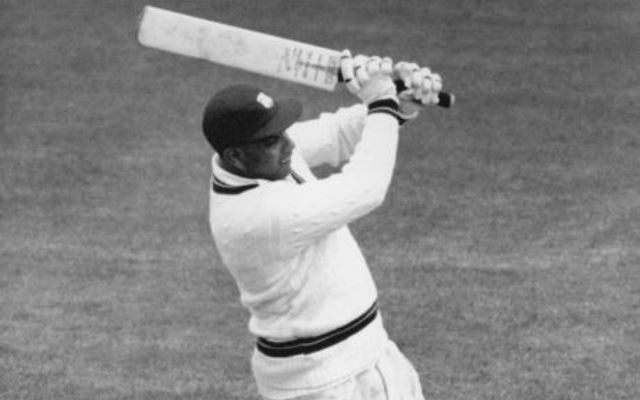
During the mid 20th century, cricket was dominated by the giants of the game, England and Australia. West Indies were just entering into the picture with their flamboyance and carefree cricket. Then came the popular ‘Three Ws’, all three were one of the hardest hitters of the game and were famous for their strong front foot technique. Sir Clyde Leopold Walcott was the youngest of them but grew up to be the tallest.
He started his career with a sluggish series against England in 1948. But with his second series against India, he proved his real mettle. The right-hander scored 452 runs in 5 Tests and the rest followed. His cover drive is regarded as one of the best in history. He is known as one of the renowned attacking players in the era where defence was considered more important than run-scoring.
In Walcott’s praise, Alex Bannister wrote in Cricket Cauldron, “He knew Hutton had to set an attacking field which left gaps in front of the wicket and he accepted the challenge with a counter-attack. How well he succeeded, is history.” Such was the swagger of the great man. Walcott got his career-best ratings in the series against Australia in 1955. He was later knighted in 1993.
9. Kumar Sangakkara- 938 points (Sri Lanka)
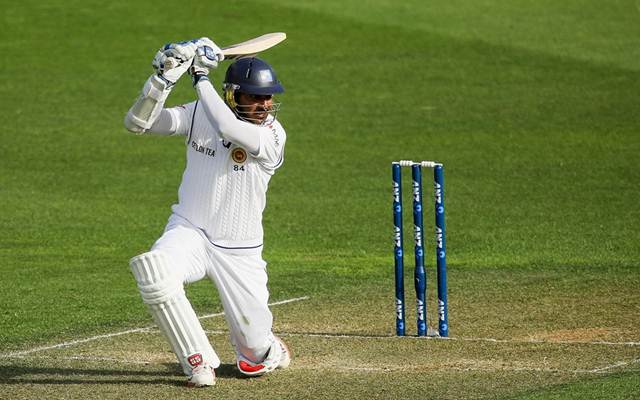
Arguably the greatest cricketer to play for Sri Lanka, Kumar Sangakkara is regarded as one of the legendary batsmen of all time. He donned the Sri Lankan jersey for the first time in 2000 against South Africa. One of the most elegant stroke players and a reliable wicketkeeper. Sangakkara played the game for 15 long years.
The 6th highest run-getter of all time is the only wicket-keeper to feature in this elite list. He along with Mahela Jayawardene formed a strong core for the Sri Lankan side. They still hold the record for the biggest partnership in Test cricket as they put on 624 runs together in 2006.
The next year, Sangakkara attained his highest-ever career ratings against England in December 2007. He was in the form of his life and continued his purple patch for some more years. He retired from international cricket in 2015, but he continued to grace the game with his dominance in T20 leagues all around the globe.
8. Gary Sobers- 938 points (West Indies)
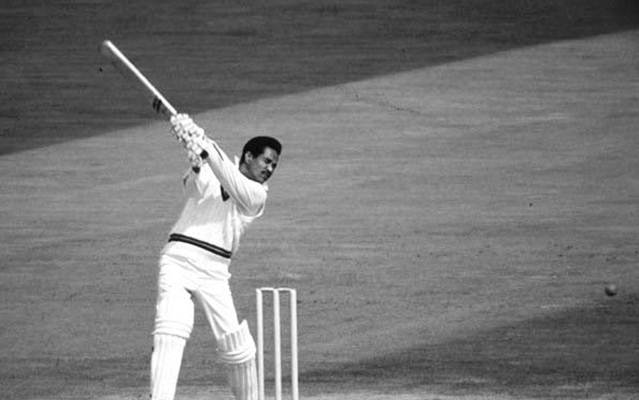
Garry Sobers is remembered as one of the best all-rounders the sport has seen. He scored 8,032 plus runs at an amazing average of 57 but his class was beyond cricketing figures. With 235 wickets for the Caribbean team, he is one of the only two players to achieve 200 wickets and 8,000 runs.
The southpaw was a Barbados lad and started off his cricket life on the beach like a typical island cricketer. He started at the age of of 17 but grew like a wine. The left-hander achieved the peak of his batsmanship when he scored an unconquered 365 against Pakistan which stayed as the highest individual score in the Test cricket of 36 long years.
He is further known for his heroics against the English side when he churned out 709 runs at an average of 101. His dominance can be understood by the fact that he scored 500 runs in 5 consecutive series. In January 1967, he attained his highest career ratings against India.
7. Vivian Richards-738 points (West Indies)
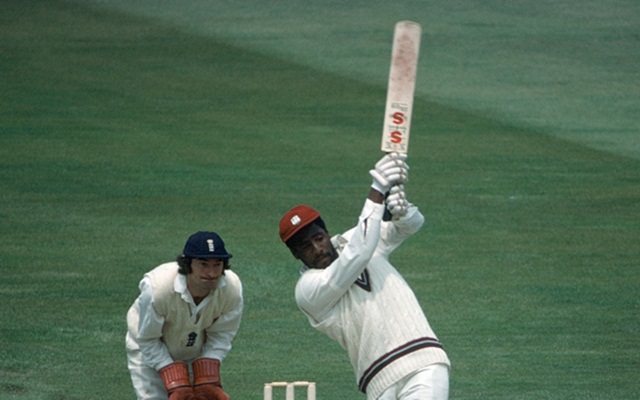
Another giant cricketer from the Caribbeans to grace this elite list. Vivian Richards is known as the man that changed how the game was played. He actually showed us the way cricket was transitioning towards the limited-overs fixtures.
Sachin Tendulkar, Virender Sehwag, Brian Lara and many more attacking batsmen idolise this great man. More than his records, the flamboyant cricketer was known for the impact he had on the mind of the opposition team. He retired 14 years before the first T20I was played, but even in that era his strike rate was 90 in ODIs and 86 in Tests.
The Antigua lad gained his career’s highest ratings in 1981 against England. He is still remembered as one of the most attacking and complete batsmen. The best word that could describe this prolific player can only be ‘Swagger’.
6. Peter May- 941 points (England)
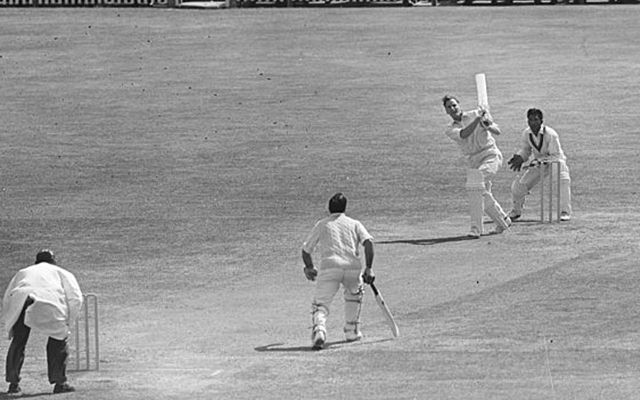
Peter May was a prodigy from the early years and later played for England. His career average of 46.77 doesn’t do any justice to his batting credentials. Often regarded as England’s best batsman in the post-war era, the right-hander was more popular for his captaincy than his magnificent batting.
May’s on-drive was a very gorgeous sight to watch and his dominance throughout the 1950s made him an automatic choice for the captain. He was on his peak at that time and thus, reached his highest career ratings during the Ashes of 1956.
The attributes that made him so dominant was his height, his strength and discipline with a near-perfect technique, a straight bat and a comprehensive range of strokes. He became captain after the 1954-55 Ashes and never lost a series under his leadership until 1958. May’s records might be less attractive but on uncovered wickets without the gears, his class was certainly outstanding.
5. Sir Jack Hobbs- 942 points (England)
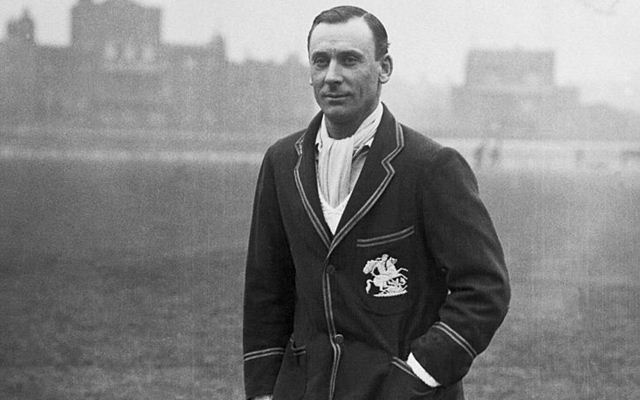
Sir Jack Hobbs was another top-order batsman from England that made his mark in the early 20th century. He made his debut at the age of 23 against Australia and the rest is history. His stature was so big that he was the first cricketer ever to be knighted.
The first time his greatness was acknowledged was in 1911-12 Ashes when his 3 consecutive centuries hushed his critics. He was also named as the “the world’s best batsman” at that time. His mantra of scoring big against all the great bowlers was to attack from the first ball and do not let the bowler settle.
Hobbs’ strike rate of 99.28 during that time was a record itself. Though his career was highly affected due to the World War-I, he played till the age of 48 and featured in 61 Test matches. He attained his highest career ratings against the Ashes rival in 1912 which remain a record for several years.
4. Ricky Ponting- 942 points (Australia)
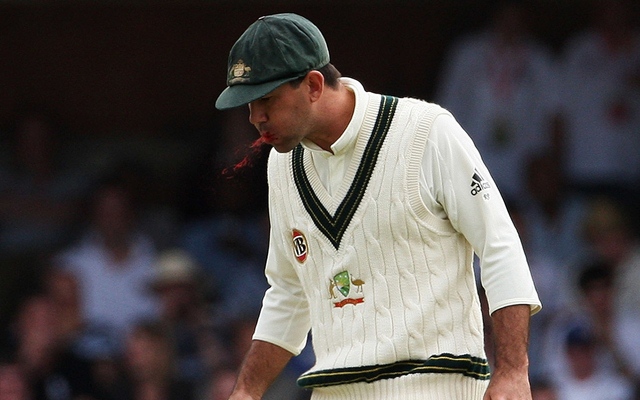
Ricky Ponting is regarded as one of the best and most successful captains the sport has ever seen. The right-hander came in the era of Brian Lara, Sachin Tendulkar and Inzamam ul Haq but his class was second to none. His dazzling shots on short deliveries are still popular on Youtube as he played most of his career on bouncy Australian decks.
The Tasmanian batsman had all the elements of an Australian player, his style of sledging, his aggression and the mental toughness earned him great respect in the cricket fraternity. He was always in line to become a great batsman but his leadership ability was always given more importance. Punter attained his highest ratings against England during The Ashes 2006-07.
The Aussie captain remained on the top of ICC’s chart of best Test batsmen from 2005 till 2007. A lot of pundits said he should have played for a little longer being a batsman but he always played on his own terms. Ponting retired as the second-highest run-getter of Test cricket with an average of 51.85.
3. Sir Leonard Hutton- 945 points (England)
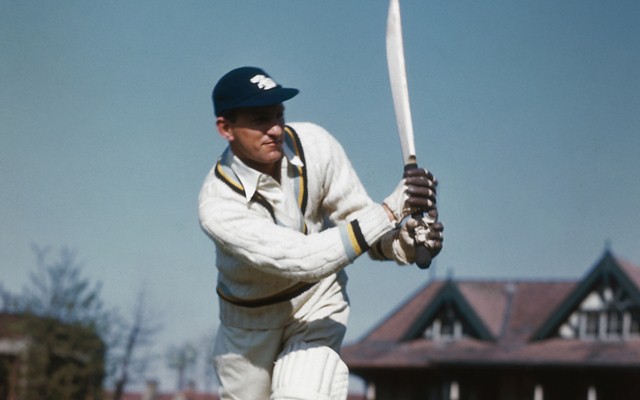
Len Hutton, another English captain, was a very clever top-order batting giant. The right-hander was a teenage prodigy for Yorkshire during his early days. Though his career was majorly affected by World War-II, he still developed himself as one of the leading batsmen in the post-war era.
Hutton injured one of his arms during the commando training in the war. He never really recovered and changed his batting style. Also, the English team in the early 50s was highly dependent on his batting and the awareness of the same made him change his technique.
He had the ability to score at a quicker rate as he was one of the best stroke makers of his time. But the greater reliability and the pressure of captaincy made him transform himself into a determined defensive player. Even the injury or the pressure didn’t affect the legend as he achieved his best career ratings in 1954 against West Indies at the age of 38, right before his retirement.
2. Steven Smith- 947 points (Australia)
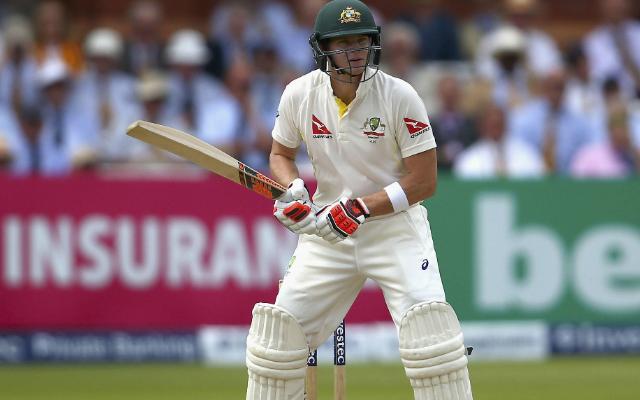
The only current player to feature in this elite list, Steve Smith has just defined how nothing is impossible. He started his career as a leg-spinner for Australia who can bat a bit in the lower order. Later, his credentials with a bat made some serious noise and he transformed himself into the best Test batsman of his generation.
His first successful stint as a pure batsman came during the 2013 Ashes series, 3 years after his Test debut. Always criticised for his unconventional batting technique, Smith is very strong on the on-side. More than his technique or his batting potential, the trait that makes him a class apart from the other batsman of his generation is his mental strength of playing long knocks in testing conditions.
Smith captained Australia successfully after the departure of Michael Clarke but the journey came to an end after the ‘sandpaper saga’. There has been a lot of comparison between Smith and his Indian counterpart, Virat Kohli. But if we see closely, Smith’s numbers in Tests are far ahead from the Indian skipper. Smith attained his best career ratings against England in 2017 and is still on top of the ICC cricket Rankings.
1. Sir Don Bradman- 961 points (Australia)
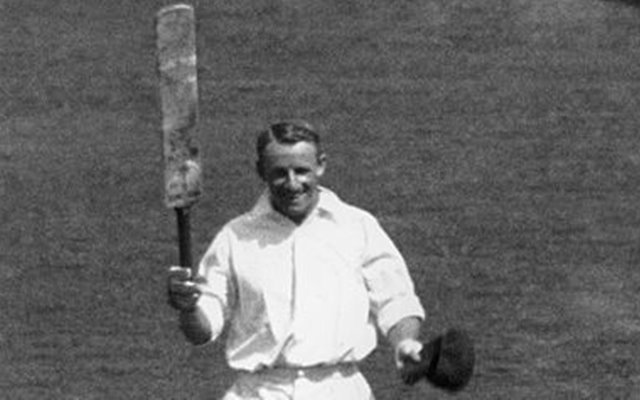
The difference of mere 9 points among the 10th and 2nd batsman of the list and 14 points among the 2nd and the 1st batsman tells us how far ahead Don Bradman is from any other batsman. He is often regarded as the best player who ever stepped inside the cricket field. During his journey, taking the first wicket against the Australians was considered a catastrophe for the bowlers as Don used to walk in.
His career average of 99.94 is still a record to break. He scored a duck in his last game, otherwise, his average would have crossed 100. But Don’s fear and his stories are the real legacies the New South Welshman has left behind.
He was a prodigy since his school days. What made him different was a near-perfect technique and the self-belief that took him miles ahead of everyone else. Bradman attained his career highest ratings against India in 1948 and the same year he retired at the age of 40.
To sign off, here is an excerpt from an interview of Sir Donald Bradman, which tells us how his self-belief was one of a kind.
Interviewer: How much do you think you would have averaged against the current (the 1990s) England team?
Bradman: I don’t know, maybe 50-60.
Interviewer: Surely it would be much higher?
Bradman: Oh, I don’t know. I am ninety-two after all.
Download Our App